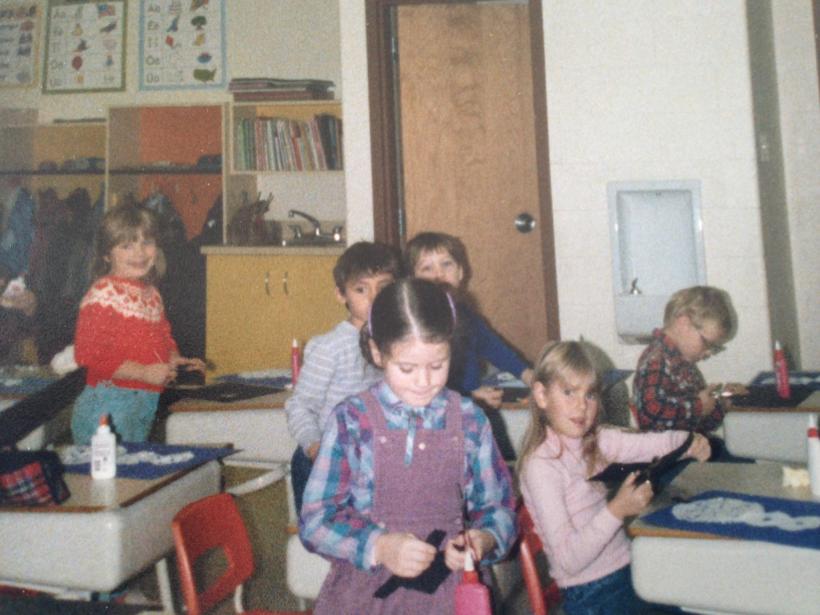
Pedant-in-training.
There’s a name for having a heightened sensitivity to discomfort other people are experiencing. It’s called empathy, and it’s a good thing.
My mom loves to tell the story of me correcting my Kindergarten classmates who couldn’t properly identify the shape of an egg.
“They called it a circle,” I said. So, obviously I had to explain to my fellow 5-year-olds how the oval got its name.
My recollection of the incident is more of a feeling. A feeling that pervades many of my childhood memories and social interactions since. No, not the feeling that I’m an annoying know-it-all (I am) or that I’m obsessed with eggs (also true, especially chocolate ones).
What I remember about that incident is the feeling that I have no idea how to act in a group setting, that I’m always saying the wrong thing, and that I should have just stayed home with my Care Bear comforter pulled over my head.
As an adult, though, I’ve come to realize there are actually a bunch of great things about being socially awkward.
1. What’s One More Awkward Moment?
I grew up to be a television reporter. This may sound totally incongruous, but the job is an endless string of uncomfortable moments. I have to go up to strangers and ask unpleasant questions, and barge into places where people don’t want me.
I’m already terrified of formulating an answer when my drycleaner asks me “When do you need this suit back?” Really, what’s the difference?
Whether it’s during a job interview or standing up for yourself with a salesperson, if you already feel awkward in everything you do, you might as well go for the things you want and embrace the collateral awkwardness. It would be there anyway.
2. Good in horrible situations.
There are times in life when everyone is awkward. Breakups. Offering condolences after someone dies. Apologizing.
If you’re socially awkward, you may actually perform better in these situations than people who seem to have mastered human interaction. Or, at least, you’re going to feel better about it than they are, because you’re used to feeling like it went badly and everyone is judging you.
This feeling can be unbearable for those unfamiliar with it, but for those of us who personify social ineptitude, it’s just another day.
3. No FOMO.
You are not afraid of missing out. To you “Netflix and chill” means, um, you know, actually watching Netflix and relaxing.
You know that what you are “missing out on” is an evening of sweaty palms and wondering if “How’s it going?” is really code for “What the hell is wrong with you?” Other people’s fun Instagram photos have no power over you.
4. People pleasantly surprise you.
To the socially graceless, our default assumption about the rest of humankind is “they’re judging me.” Often, when we find out that someone appreciates us or, gasp, likes us, it comes as a complete shock. How did we manage to interact without being weird or offputting? We aren’t sure, but it comes as a pleasant surprise.
Life tends to be full of these little surprises because most people aren’t jerks, and neither are we.
5. Empathy, baby.
Have you ever watched someone do something they’re failing really hard at? Making a presentation, or picking someone up in a bar, or trying to close a sale? It’s excruciating.
For the socially awkward, it’s particularly upsetting because we know this feeling. It’s the feeling we get just trying to formulate an English language sentence to acknowledge the existence of another person. (“How about ‘Hello?’ is ‘Hello’ too weird? Frick. Abort, abort, how do I get out of here?”) Yeah. That’s every day for an awkward person.
There’s a name for having a heightened sensitivity to discomfort other people are experiencing. It’s called empathy, and it’s a good thing.
If you notice and care when other people are having a hard time, you’re more likely to be a good friend, a good coworker, and a good partner. It may not be easy to express that concern, but the world can use more empathy, even when it comes out in our own clunky way.



